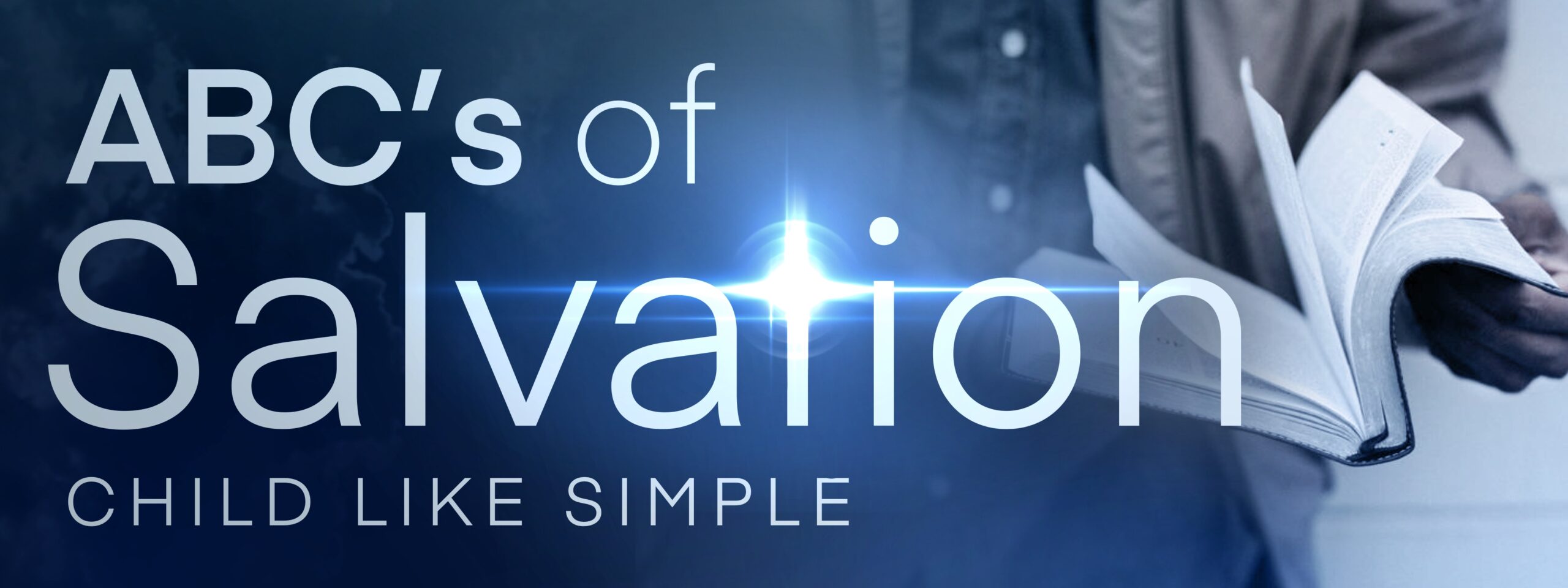As high watch times come and go, weary saints sometimes ask, “How much longer, Lord? Why not now?”
The convergence of signs gets our hopes up; this must surely be the season (and it surely is). But still we wait with the assurance that at some point, the Lord will reward our patience (2 Timothy 4:8).
It feels like the Tribulation is so close we can almost reach out and touch it. Some speculate that it has already begun because they see so many of the conditions described in Revelation 6:1-8. These, however, are mere precursors to a time that will be far, far worse than anything we currently see. They are the Lord’s way of warning people of what lies ahead.
At times like these, the words of Scripture bring the most comfort to me and I suspect they do the same for you. We endure because the words on the pages of our Bibles ring out with the good news that Jesus will take us home to glory before the start of the Tribulation.
Let me explain why I’m so confident of this hope.
The Rapture Is A Biblical Event
The Rapture is biblical event. The late Dr. Ed Hindson, former professor at Liberty University, Bible scholar, and author put it this way:
If you disagree on the timing of the rapture, please don’t tell people, ‘There’s never going to be a rapture.’ No, there must be a rapture or the Bible is not true. There must be a time when the archangel shouts, when the trumpet sounds, and the dead in Christ are raised and the living are caught up (1 Thessalonians 4:13-18). We may differ on the timing of the rapture but not the fact of the rapture.
We also find references to this same event in John 14:2-3, 1 Corinthians 15:50-55, Philippians 3:20-21, Romans 8:23-25, Titus 2:11-14, John 3:2-3, and Colossians 3:4. Putting these passage together, we have a chain of events that describe Jesus’ appearing during which time He raises the “dead in Christ,” catches believers that are alive to meet Him in the air, and gives all His saints immortal resurrection bodies.
If the words of Scripture mean what the author intended, there must be a time when Jesus comes for His Church as described by both Jesus and the apostles.
However, this alone doesn’t tell us the timing of the Rapture in respect to the Tribulation. For that, we must dig deeper.
The Rapture Is A Unique Event
When we compare Bible passages that describe the Rapture with those of the Second Coming, we recognize that they cannot be the same event. Our “blessed hope” is a unique event that must happen at a time before Jesus’ return to earth at the end of the Tribulation. The many differences tell us they must be separate events. I list a few of those below.
At Jesus’ appearing, He raises the “dead in Christ” first (1 Thessalonians 4:16). When Jesus returns, the resurrection of the Tribulation saints occurs after several other events (Revelation 19:17-20:4); it likely happens several days later. The timing of the resurrection alone makes the Rapture unique.
The participants in the resurrection are also different. At the Second Coming, Jesus only raises a specific group of believers, but with the Rapture He raises all the “dead in Christ” before catching us up in the air with glorified bodies.
![]()
In Your Inbox
In addition, the two events must be separated by a period of time in order for believers to enter the Millennium in their natural bodies. A sizeable gap in time must exist after the Rapture for those left behind to come to faith in Jesus and survive until He returns.
Imminency
In Philippians 3:20–21, Paul wrote: “For our conversation is in heaven; from whence also we look for the Saviour, the Lord Jesus Christ: Who shall change our vile body, that it may be fashioned like unto his glorious body, according to the working whereby he is able even to subdue all things unto himself.”
The Greek word for “await” in verse 20 points to an “intense anticipation” or an “excited expectation” of a future event.
Luke used the same Greek word for “await” in Acts 17:16 to describe Paul’s restless “waiting” in Athens for Silas and Timothy to rejoin him. After the apostle’s distressing experiences in Philippi, Thessalonica, and Berea, we know he intently watched and longed for a reunion with his fellow laborers. This is the same passionate yearning of the soul with which the apostle characterizes the waiting of the Philippians for the Lord’s appearing.
Such an eager anticipation of the Rapture only makes sense if it can happen at any moment.
Expectations
Why did the Thessalonian saints grieve for members of their church that had died (1 Thessalonians 4:13)? If it had been a matter of doubting their resurrection with immortal bodies, the response of Paul would have been similar to that in 1 Corinthians 15 where he addressed that topic.
Instead, the apostle emphasized the prominence of the “dead in Christ” in the Rapture. The Thessalonians grieved because they believed their loved ones would miss out on Jesus’ appearing.
Not only was there a sense of imminency regarding meeting Jesus in the air, but they believed it could happen during their lifetime and felt despondent for those they thought would miss it.
Surprise
In 1 Thessalonians 5:1-3, Paul wrote that the “sudden destruction” of the “day of the Lord” would come as a surprise to people; it will arrive when many are saying “There is peace and security.”
The “Day of the Lord” is an Old Testament term for a time when God pours out His wrath on the entire world. About 45 years after the apostle wrote to the Thessalonians, the Apostle John wrote the book of Revelation in which he described the judgments of this time in greater detail (see chapters 6-18).
Since we know that this day will begin as a surprise, when in the series of seal, trumpet, and bowl judgments is that most likely to happen? For it to come without any warning, it must start before the seals bring death to nearly two billion people.
And that’s exactly what the Lord promises us through the words of the Apostle Paul in 1 Thessalonians 5:9-10: “For God hath not appointed us to wrath, but to obtain salvation by our Lord Jesus Christ, Who died for us, that, whether we wake or sleep, we should live together with him.”
The “wrath” is that of the “Day of the Lord,” which includes the entire Tribulation. The Rapture must happen before the start of the Tribulation.
Jesus’ Promise
Jesus made this remarkable promise to the church at Philadelphia:
Revelation 3:10 KJV – “Because thou hast kept the word of my patience, I also will keep thee from the hour of temptation, which shall come upon all the world, to try them that dwell upon the earth.”
Let’s explore Jesus’ promise to see how it relates to our hope of placing the Rapture before the start of the Tribulation.
What is the “hour of trial?” We first see that it impacts the “whole world,” which identifies it as something far different than what would impact the local church at Philadelphia. “The period of distress that John describes in Revelation 6–18 fits especially well with the coming “hour of trial” that Jesus refers to in Revelation 3:10.”
Next, we notice that this “hour of trial” is specifically for “those who dwell on the earth.” Looking at how John uses this expression later in Revelation, we see that the description either refers to either people impacted by the Tribulation or to those refusing to repent of their sins during that time (Rev. 6:10; 8:13; 11:10; 13:8–12, 14; 14:6; 17:8).
Jesus confirms His promise to keep us out of this time with His words in Revelation 3:11a, “I am coming soon.” (The Greek word for “soon” more accurately denotes an event that takes place “quickly” such as the Rapture.)
The Church’s Absence
Evidence of the Church’s absence during the Tribulation is seen in the fact that John never mentions it during his eyewitness account of the judgments that hit the earth (Revelation, chapters 6-18). Why would a book addressed specifically to seven churches not mention them in its description of the Lord’s wrath on the earth if they were meant to endure it?
Perhaps even more significant is the presence of other witnesses during this time. If the Church is still present on the earth with the task of proclaiming the Gospel, why does God place two witnesses in Jerusalem (Revelation 11:1–13)?
In Revelation 14:6–7, John writes about an angel who will share the good news of salvation during the time of the Tribulation. If the Church was still present on the earth, why is this necessary?
The 144,000 Jews whom God will “seal” or protect as the world experiences God’s wrath (Revelation 7:1–8) will act as evangelists. Besides the fact that this is now the task of the church, this setting apart would contradict what we read about it in the New Testament.
In Colossians 3:11, Paul wrote about the Body of Christ: “Where there is neither Greek nor Jew, circumcision nor uncircumcision, Barbarian, Scythian, bond nor free: but Christ is all, and in all.”
In the current church age, it’s impossible to have a group of Jewish men that are distinct from the Church. This can only happen after Jesus removes us from the earth.
Church History
We must base our belief in the Rapture on the words of Scripture; this is the apostolic faith that we have in our hands, our Bibles. I refer to church history below only to point out a couple errors that the scoffers repeatedly make in attacking the Rapture.
First, please know that Bible teachers during the past two centuries didn’t create a new doctrine, but simply applied the word “Rapture” to an event thoroughly described on the pages of the New Testament. In the words of Ed Hindson, “. . .there must be a rapture or the Bible is not true. There must be a time when the archangel shouts, when the trumpet sounds, and the dead in Christ are raised and the living are caught up (1 Thessalonians 4:13-18).”
Second, contrary to what the scoffers claim, many writers in the early centuries of the church believed that Jesus would come for His saints before a time of extended tribulation on the earth.
In AD 180, esteemed early church theologian, Irenaeus wrote the following in Against Heresies, Book 5, Chapter 29:
And therefore, when in the end the Church shall be suddenly caught up from this, it is said, “There shall be Tribulation such as has not been since the beginning, neither shall be.”
Irenaeus used the same Greek word for “caught up,” harpazo, that Paul used in 1 Thessalonians 4:17 for the Lord catching up living believers to meet Him in the air. Irenaeus placed this event ahead of the time of “tribulation” that Jesus referred to in Matthew 24:21.
In my book, The Triumph of the Redeemed-An eternal Perspective that Calms Our Fears in Perilous Times. I cite several other references from early church history demonstrating a belief in what we today refer to as the Rapture.
Sanctified Groaning
The biblical basis for the pre-Tribulation Rapture is rock-solid because it’s based on the words of the New Testament. We know Jesus is coming for us before the start of the seven-year Tribulation.
It’s difficult to wait amid personal pain, the wickedness all around us, and our awareness that a much, much better day awaits us once the trumpet sounds. Jesus could come for us today, but it’s also true we might need to wait while the world grows darker and more foreboding for us.
Two times, Paul refers to our groaning ahead of the receipt of our immortal bodies (Romans 8:23-25; 2 Corinthians 5:4-5). It’s rather doubtful that the apostle was referring to complaining. The Greek word depicts a sighing because of grief and can even denote a quick inward prayer in the midst of discomfort.
Jesus is coming for us soon and it can happen at any moment. In the meantime, we look up knowing that the completion of our redemption is ever so close. In the meantime, perhaps a little sanctified groaning is appropriate as we compare our current circumstances to the overwhelming joy that awaits us when Jesus appears.
The good news is that we have a sure hope of immortal bodies and meeting our Savior in the air and it will happen suddenly, perhaps in the near future.














